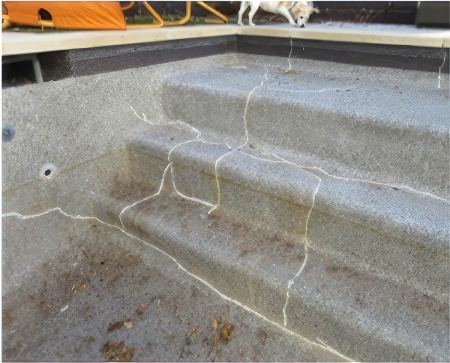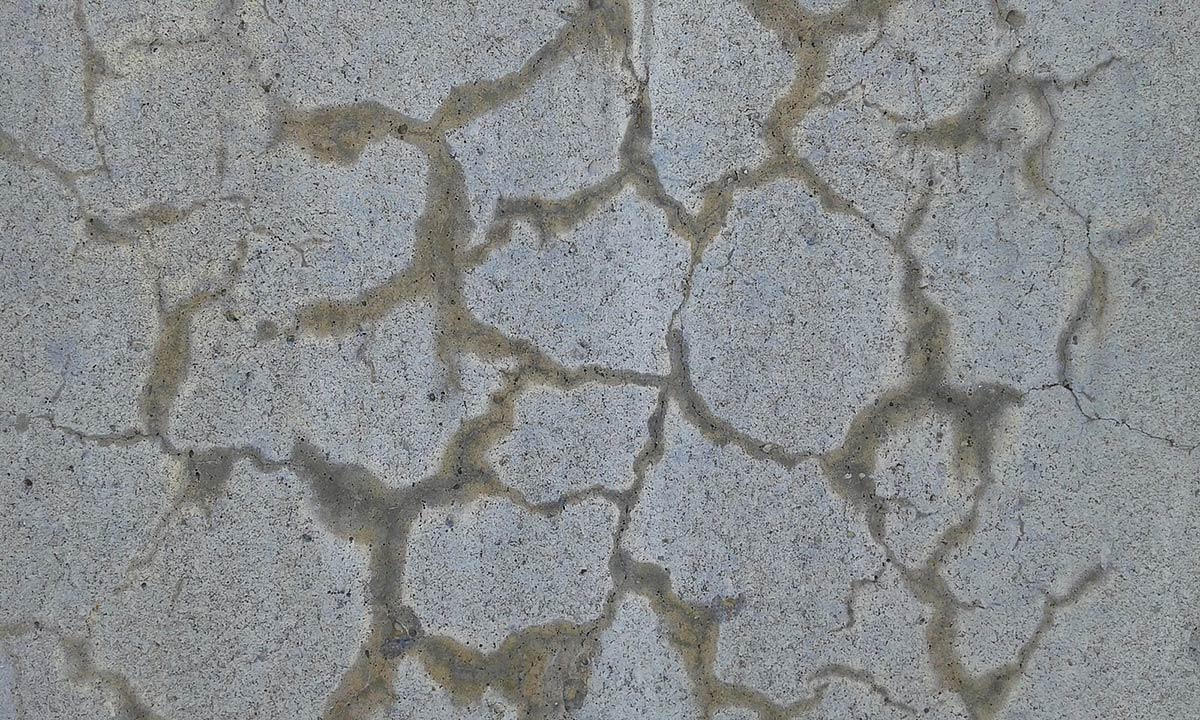The KVUE Defenders (KVUE ABC, Austin, Texas) have discovered a hidden defect in possibly thousands of pools built in Central Texas in 2017 and later. It’s called “concrete cancer,” and it’s costing families their backyard dreams.
“Concrete cancer” is a more common term for a process called “alkali-silica reaction” (ASR), which occurs when steel reinforcements inside concrete walls begin to corrode and swell, causing concrete to crack. Since “alkali-silica reaction” doesn’t easily roll off the tongue, you’ll often hear it referred to as “concrete cancer,” which nods to the chemical reaction’s invasive spread throughout a piece of concrete, as a result of the corrosion of any steel encased within.
Once concrete cancer takes root, it can cost thousands of dollars in repairs. Read on to learn more about concrete cancer, including causes, signs of a developing problem and examples of what concrete cancer looks like in pools, as well as how opting for a fiberglass pool can help ensure you never have to worry about this troublesome phenomenon.
 What is an Alkali-Silica Reaction in Concrete (Concrete Cancer)?
What is an Alkali-Silica Reaction in Concrete (Concrete Cancer)?
Concrete cancer, by definition, refers to alkali-silica reactivity (ASR), a chemical reaction that occurs when steel walls or beams used to reinforce concrete start to corrode and expand. This is due to cracks in concrete, which allow water and air to penetrate through the concrete and make contact with steel reinforcements beneath the concrete.
When the concrete begins to rust and expand, this causes the concrete to shift and crack. These cracks further expose the steel walls or beams beneath, accelerating corrosion and dramatically compromising a structure’s integrity.
You’ll often hear the term “concrete spalling” used interchangeably with concrete cancer and ASR. However, when using the terms concrete spalling vs concrete cancer, concrete spalling more accurately describes the early stages that lead to concrete cancer, when concrete begins to gradually crack and flake. Concrete cancer (or ASR) is the more applicable term when concrete spalling has worsened and spread, causing widespread damage throughout the steel substructure beneath concrete.
Concrete swimming pools are particularly vulnerable to concrete cancer. Age can wear down the concrete and cause cracks, but even newer concrete pool owners need to stay vigilant against concrete cancer. If you’re not properly maintaining your concrete pool or if your pool was not installed or poured properly, even a brand new concrete pool can be susceptible to concrete cancer.
Stop Worrying and Start Enjoying a New Fiberglass Pool Today
Fiberglass swimming pools undergo quality control measures that include batch testing of raw materials for flexural and tensile strength, cure percentages, barcoal hardness, burn and boil limits, and thickness inspections in precise locations on every manufactured shell.
The threat of concrete cancer can be concerning to pool owners, as it’s costly and can dramatically damage one of your most precious possessions – your pool. Opting for a fiberglass pool can not only eliminate that worry, but requires considerably less maintenance., giving you more time to enjoy it! Learn more about our fiberglass inground swimming pools and start planning your backyard oasis today – without the risk of concrete cancer.
Learn More About Pool Maintenance
Owning a pool should come with more joyful moments than headaches. While regular pool maintenance goes with the territory of pool ownership, it shouldn’t feel overwhelming. Choosing the right type of pool can help you get more enjoyment out of it, serving as a cherished centerpiece of your backyard and a hub of happy memories for years to come.
Get some helpful tips for maintaining your pool:
- Fiberglass vs Concrete
Find out how these three popular pool materials stack up against each other in terms of longevity, upkeep, and more! - Fiberglass Pools Never Require Acid Baths, Ever
Fiberglass pools never require acid baths, ever! - Learn More About Fiberglass Swimming Pools
Explore common questions from the cost of the finished pool to questions about maintenance.
If you would like to learn more, feel free to give us a call and speak to one of our pool design specialists at 800-432-8994.

